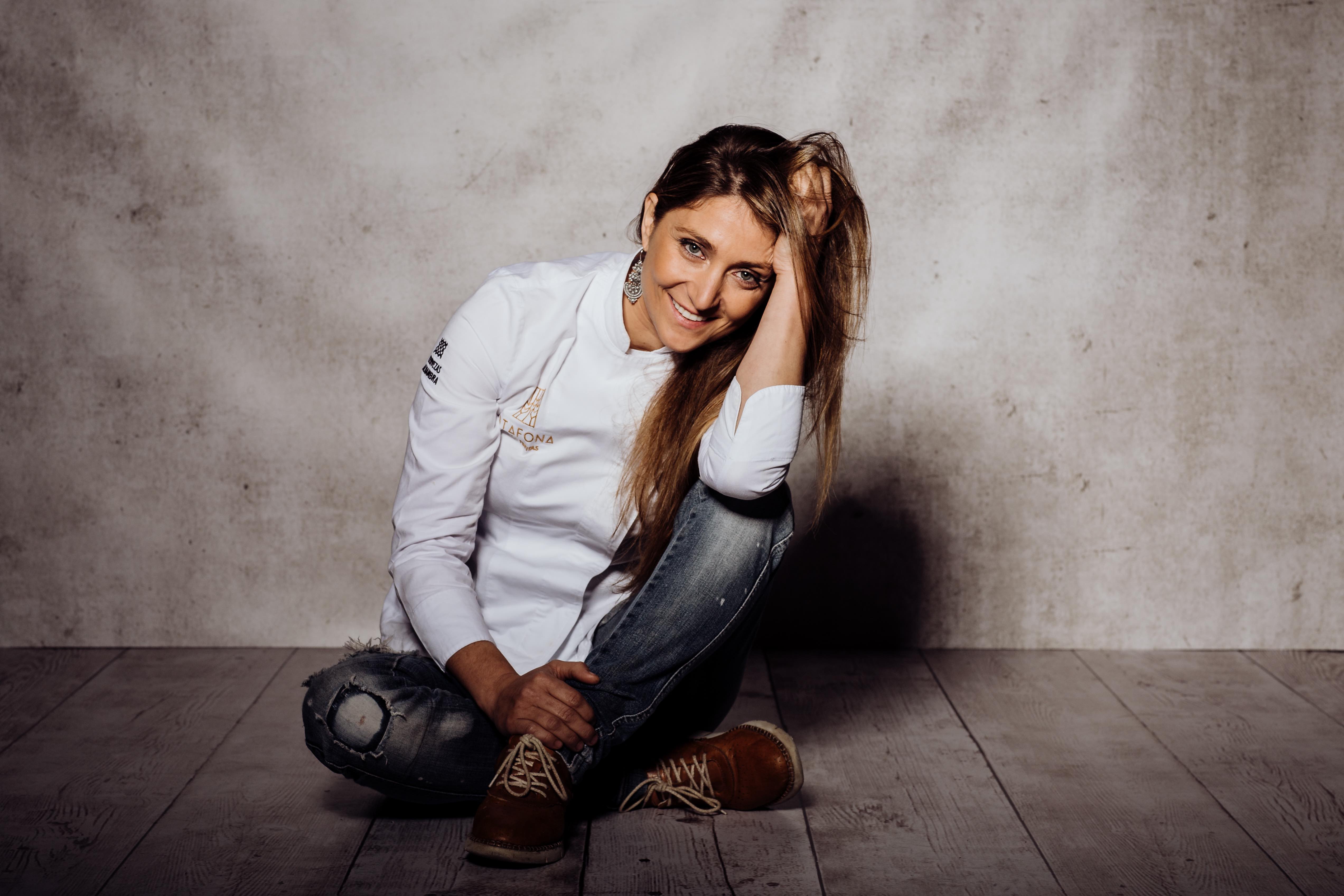
Latest information

Interview with Lucía Freitas, Galician Michelin Star chef
We spoke to the chef and owner of the restaurants A Tafona and Lume (Santiago de Compostela) about entrepreneurship and women in the hospitality sector and what the keys to the future are. We also enquired about her upcoming projects.
How would you sum up your career in the world of cooking?
I see it as an extensive career full of effort, work, struggle and self-improvement, with many difficulties that made me a stronger person. If there is one thing that is clear to me, it is that I reached this point of recognition by dreaming big and working towards those goals. And it is clear to me that I am at the halfway point of my career and there is still a long way to go and keep dreaming.
Which ingredient makes Galician cuisine so successful every time?
Galician cuisine is renowned for the quality of all our products. We are fortunate to live surrounded by a spectacular sea rich in plankton which, together with the quality, temperature and currents of our sea, give our fish and seafood here a unique quality. In addition, many of these species are exclusive to our coasts. We also have a deep-rooted agricultural, dairy and livestock farming tradition and culture, which, together with the climate and a land rich in properties, gives an exceptional quality to every product that comes out of our inland lands. For this reason, our products are present in the best restaurants in the country.
What kind of dishes can be found in your restaurants?
I would sum up my cuisine as an extension of me, of my experiences, my thoughts, my market, the placeras, my vegetable garden... An updated "Atlantic cuisine" with a contemporary vision of the region, which is committed to showcasing the vegetable garden and the Galician sea as the protagonists of my gastronomic proposals in haute cuisine.
Your cuisine carries the Galicia Calidade label. What does this label mean for your diners?
For both myself and my clients, this seal means a declaration of intent, in the spirit of serving and making them enjoy the best of your land every day, and conveying them pride, respect and love for Galicia's gastronomic heritage.
How do you bring innovation to a dish made in Galicia?
With knowledge and respect, but also reaching the diner in a fun and surprising way, with technique, imagination and a reformulation of traditional recipes. For me, innovation means being in the present and future, learning and researching the recipes of the past.
What does it take to be a successful chef?
I devote a large part of my time to organising and managing my own time, due to the large number of requests and invitations I receive to attend events, courses, activities and national and international gastronomic forums. This organisation coexists with the management and different duties that my restaurants require. And in this sense, there are also the creative processes involved in the creation of new dishes, menus and projects. Finally, it also implies having the responsibility of being a visible head and spokesperson for the work of producers and women who form part of the gastronomic ecosystem of Galicia.
Would you say it is more difficult to get there or to stay there?
In my case it was more difficult to "get there" due to the lack of economic resources I had when I started my restaurant and in the first years of management and day-to-day running of the restaurant. It took 9 years of very hard work to get that Michelin Star (let's understand this Star to mean "getting there"). Now it is time to maintain it, and in this aspect, there are many external conditioning factors that can affect whether or not I continue in this line of recognition or even professional growth.
Hospitality was one of the sectors that suffered the most from the health crisis, how did you manage to keep going?
The most important thing was to never stop working, to make our customers feel that we were there for them. In the first phase with home-delivered food (which I delivered and took to people's homes) and then creating new lines of business that the hiatus due to the pandemic allowed me to start up (a brand of ice cream, a line of nougat, chocolates...) and the birth of Misto as a more informal food brand.
Should customers be treated with the same care as employees?
I think that more care and attention should be given to the employees themselves, as they will be the ones in charge of looking after and pampering the customers who come to your house. Good customer service is a given in establishments of this level, but everything is easier if the staff feel valued and happy.
What are Lucia Freitas' plans for the future?
In the short term, a third restaurant will be opened in Santiago, again in the vicinity of the Plaza de Abastos, with a more informal offer based on grilled meats and pastries. At the same time, we are developing a social gastronomy project that we hope to launch next year. And of course, to continue learning, researching and experimenting.